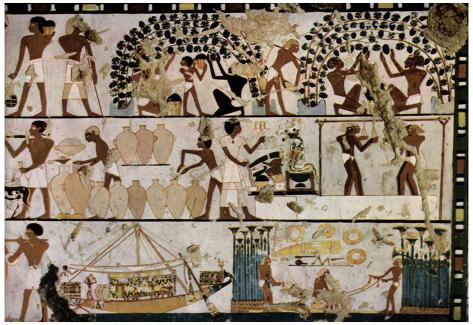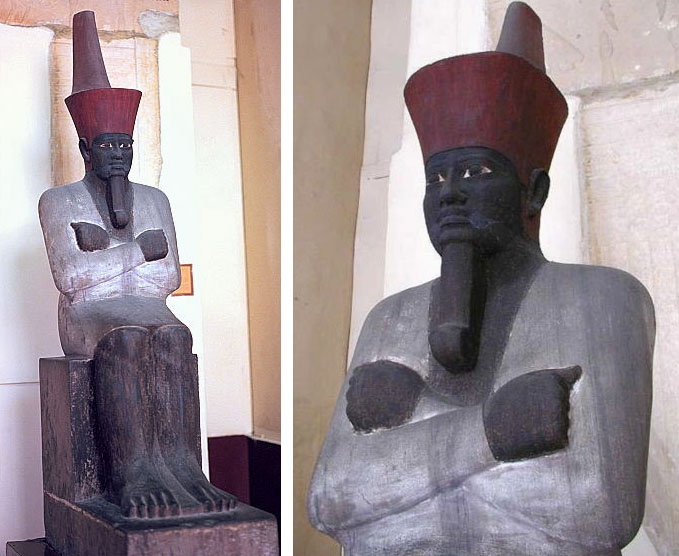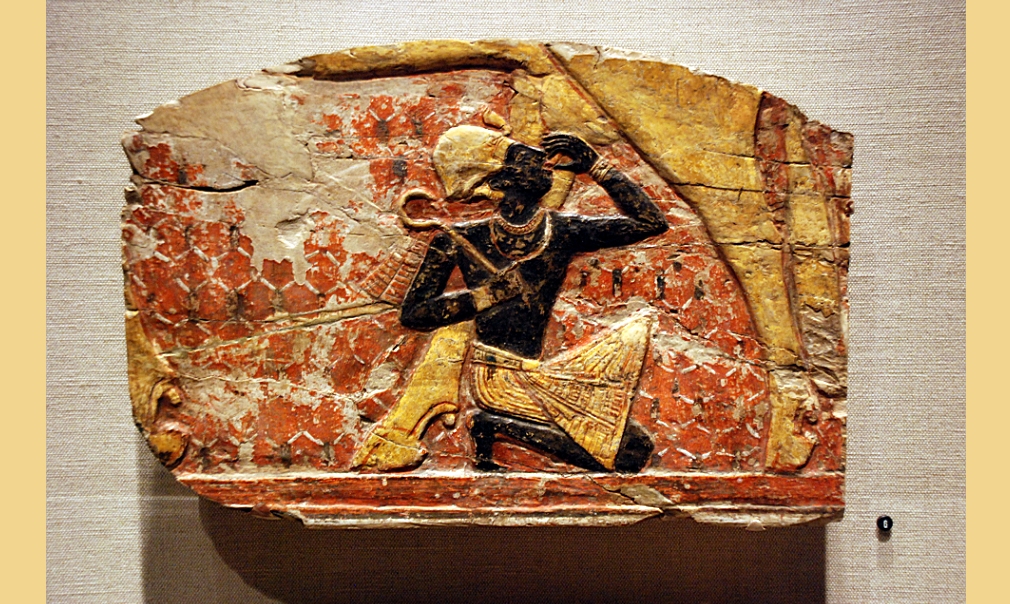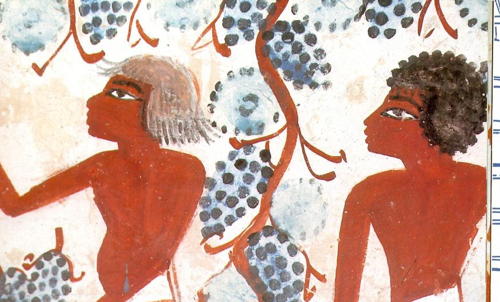Hm...as some one who is black, I personally do not think that the Egyptians were "black" based on my own observations and research..
they were black
"
There is now a sufficient body of evidence from modern studies of skeletal remains to indicate that the ancient Egyptians, especially southern Egyptians, exhibited physical characteristics that are within the range of variation for ancient and modern indigenous peoples of the Sahara and tropical Africa.. In general, the inhabitants of Upper Egypt and Nubia had the greatest biological affinity to people of the Sahara and more southerly areas." (Nancy C. Lovell, " Egyptians, physical anthropology of," in Encyclopedia of the Archaeology of Ancient Egypt, ed. Kathryn A. Bard and Steven Blake Shubert, ( London and New York: Routledge, 1999) pp 328-332)
and
"must be placed in the context of hypotheses
informed by archaeological, linguistic, geographic and other data. In such contexts, the physical anthropological evidence indicates that early Nile Valley populations can be identified as part of an African lineage, but exhibiting local variation. This variation represents the short and long term effects of evolutionary forces, such as gene flow, genetic drift, and natural selection, influenced by culture and geography." ("Nancy C. Lovell, " Egyptians, physical anthropology of," in Encyclopedia of the Archaeology of Ancient Egypt, ed. Kathryn A. Bard and Steven Blake Shubert, ( London and New York: Routledge, 1999). pp 328-332)
Perhaps the later dynasties where there was a lot of Nubian influence absorbed by them particularly after the 25th dynasty. But I don't think Ramses II, King Tut etc etc were "black."
King Tut's DNA results where posted in the first couple of pages...it's a huge diagram so you can't miss it...
He was Black with minor non-Black DNA
And Ramses III was comprised of something called E1b1a which is a "sub saharan" dna type. And I guess Ramses II is related to Ramses III so you do the math.
Egypt geographically and culturally appears to have a stronger proximity and cultural similarity to the Arabian peninsula (farming techniques, art, some gluttal annunciation of language etc) as opposed to other "black" African ethnicities.
Ancient Egypt was an African culture.
"
The evidence also points to linkages to other northeast African peoples, not coincidentally approximating the modern range of languages closely related to Egyptian in the Afro-Asiatic group (formerly called Hamito-Semetic).
These linguistic similarities place ancient Egyptian in a close relationship with languages spoken today as far west as Chad, and as far south as Somalia. Archaeological evidence also strongly supports an African origin. A widespread northeastern African cultural assemblage, including distinctive multiple barbed harpoons and pottery decorated with dotted wavy line patterns, appears during the early Neolithic (also known as the Aqualithic, a reference to the mild climate of the Sahara at this time).
Saharan and Sudanese rock art from this time resembles early Egyptian iconography. Strong connections between Nubian (Sudanese) and Egyptian material culture continue in later Neolithic Badarian culture of Upper Egypt. Similarities include black-topped wares, vessels with characteristic ripple-burnished surfaces, a special tulip-shaped vessel with incised and white-filled decoration, palettes, and harpoons..."
"Other ancient Egyptian practices show strong similarities to modern African cultures including divine kingship, the use of headrests, body art, circumcision, and male coming-of-age rituals, all suggesting an African substratum or foundation for Egyptian civilization."
"The race and origins of the Ancient Egyptians have been a source of considerable debate. Scholars in the late and early 20th centuries rejected any considerations of the Egyptians as black Africans by defining the Egyptians either as non-African (i.e Near Easterners or Indo-Aryan), or as members of a separate brown (as opposed to a black) race, or as a mixture of lighter-skinned peoples with black Africans. In the later half of the 20th century, Afrocentric scholars have countered this Eurocentric and often racist perspective by characterizing the Egyptians as black and African....."
"Physical anthropologists are increasingly concluding that racial definitions are the culturally defined product of selective perception and should be replaced in biological terms by the study of populations and clines. Consequently, any characterization of race of the ancient Egyptians depend on modern cultural definitions, not on scientific study.
Thus, by modern American standards it is reasonable to characterize the Egyptians as 'blacks' [i.e in a social sense] while acknowledging the scientific evidence for the physical diversity of Africans." Source: Donald Redford (2001) The Oxford encyclopedia of ancient Egypt, Volume 3. Oxford University Press. p. 27-28 "
And geographically, its civilization was formed in Southern Egypt which by the way, is a place where the Egyptians are still Black.
"The major features of cultural and political development that led to dynastic Egypt originated in southern Egypt"
http://ngm.nationalgeographic.com/geopedia/Ancient_Egypt
As far as farming techniques, yeah Egypt as a nation did interact with other nations or groups and naturally engaged in trade and also naturally adopted ways and techniques etc...key word is adopt....they incorporated techniques into their own system
"Domesticated cattle came from the Sahara but may also have come from the Near East. Considering that wheat and barley agriculture was practiced in Asia (the Near East) 2,000 years before it was in Egypt, it is important to note that the early Egyptian way of life did not change abruptly at this time (around 5000 B.C.), which is what one would expect if Egypt had simply been peopled by farmers migrating from the Near East. These early Egyptians incorporated the new food stuffs and techniques—and likely some people—into their culture and society on their own terms."
http://ngm.nationalgeographic.com/geopedia/Ancient_Egypt










 let's relax
let's relax Then why would you reply to one of the earliest points made? Don't you think 13 pages in people would have corrected me? Or do you think you were the only nikka with that information? It's okay to be wrong, only if you're open to learning...
Then why would you reply to one of the earliest points made? Don't you think 13 pages in people would have corrected me? Or do you think you were the only nikka with that information? It's okay to be wrong, only if you're open to learning... Look at the miles of coast line, look at the size of the land mass. All them ships with sailors and travellers from all over the world and other parts of Africa mixing for thousands of years. They all African nikka.
Look at the miles of coast line, look at the size of the land mass. All them ships with sailors and travellers from all over the world and other parts of Africa mixing for thousands of years. They all African nikka.






